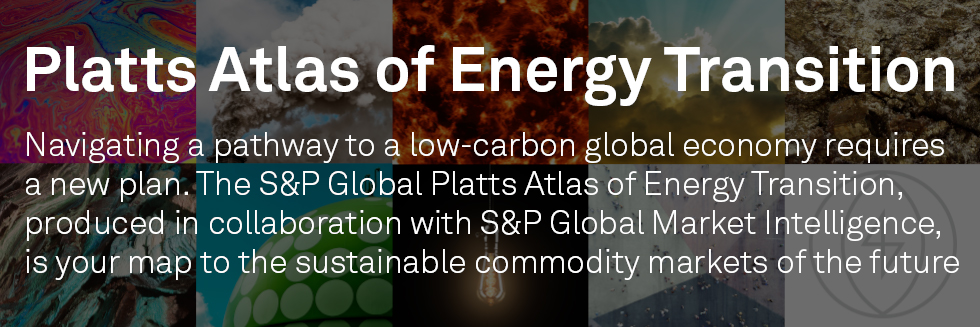In this week's highlights: Oil forums and conferences focus on post-pandemic recovery; container freight from Asia to Europe reaches all-time highs; the steel industry expects the final decision on EU-UK steel import safeguards; and Germany is to approve its 2030 climate law.
- Recovery prospects and transition goals
- Asia-Europe container freight soars
- Final decision on EU-UK steel import safeguards
- Germany is set to approve 2030 climate law
In this week's highlights: Container freight from Asia to Europe has reached all-time highs, the steel industry expects the final decision on EU-UK steel import safeguards, and Germany is to approve its 2030 climate law.
But first, in oil, prices have been buffeted by currency market fluctuations and a boost to the value of the dollar in recent days, while debate intensifies over the recovery in demand and how firmly it is underpinned, with key economies showing signs of recovering from the pandemic, most notably, from a demand point of view, India.
The Qatar Economic Forum will be taking place in Doha, featuring among many other speakers the CEOs of ExxonMobil, Shell, Total and oil trader Glencore, in addition to the Qatari energy minister and CEO of Qatar Petroleum, Saad al-Kaabi.
Key protagonists from the world of oil and energy will also be giving their views at the Reuters Global Energy Transition conference starting Tuesday.
Also this week, on Friday, is the AGM of Russia's Gazprom, where we should glean insights into the giant state company's strategy, and the progress of the Nord Stream 2 gas pipeline.
Biding its time meanwhile, is the OPEC+ group of oil producing nations, which has postponed its next meeting from Thursday June 24 to July 1.
Container freight from Asia to Europe posted fresh all-time highs last week, reflecting an over 12-fold increase compared with a year ago, and the rate looks set to increase further over the course of this week. This comes as a large-scale COVID-19 outbreak at the port of Yantian in China has resulted in significant delays of cargoes, prompting some carriers to omit the port from their schedules, which in turn has put further pressure on an already tight market.
A final decision is expected on the EU's plans to extend its steel import safeguards system for a further three years after a consultation period on the measure ended June 18. The proposed extension will continue to subject imports of a wide variety of steel products to tariff rate quotas, which will be increased by 3% annually. Steel consumers have labelled the extension as protectionist and fear it will prolong the current spate of high prices and exacerbate supply tightness in regional markets.
The EU introduced safeguards in 2018, following an import surge and the US decision in March of that year to implement a 25% import tariff on steel.
The UK is also set to make a final decision on a plan to extend its own steel import safeguards for three years from June 30 on 10 product categories and revoke the import controls on a further nine categories.
And that takes us to our social media question for the week: Do you consider an EU steel import extension protectionist? Tweet us your thoughts using the hashtag #PlattsMM.
Climate policy continues to ramp up this week, with the German Bundestag expected to approve a 2030 climate law on Thursday. The draft tightens the country's carbon target by 10 percentage points to a 65% cut by 2030 on 1990 levels. It also brings forward to 2045 Germany's net zero emissions target. Specifically for power, where demand is set to rise sharply due to electrification, a 2030 sector target leaves very little room for coal-fired generation - requiring yet more intense deployment of wind, solar and, perhaps hardest of all, new network assets at high and low voltage levels.
The Platts Atlas of Energy Transition is your map to the sustainable commodity markets of the future. You can explore the Atlas by visiting the address displayed on your screen.
Thanks for kicking off your Monday with us and have a great week ahead.


